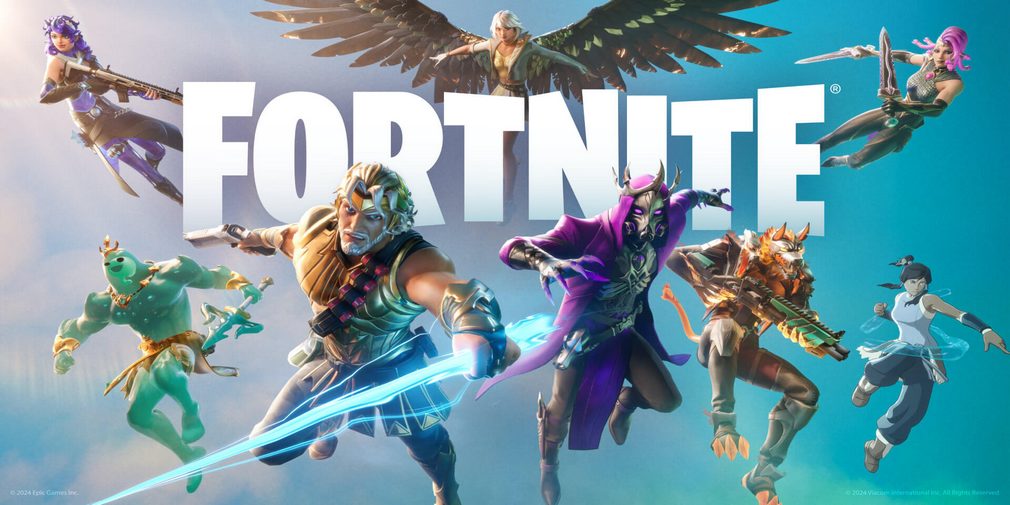
- Apple backed down mere days after pledging to dissolve Epic’s iOS developer account
- It’s the latest in a long line of harsh rebukes by the EU
- So, what’s going on with Apple holding such an iron grip on iOS?
So you may remember last week that we covered Apple taking down Epic Games’ developer account after the latter had planned to open up their own third-party app store on iOS. It was due to a lot of legislation involving the EU that this was possible, but Apple seemed to still harbour a grudge against Epic for some reason. Well, the years-long legal battle might have had something to do with it.
Update – Apple has told us and committed to the European Commission that they will reinstate our developer account. We are moving forward as planned to launch the Epic Games Store and bring Fortnite back to iOS in Europe.
More below??https://t.co/BmqFxG26ul https://t.co/GhaiqJCuFr
— Epic Games Newsroom (@EpicNewsroom) March 8, 2024
It appeared that the iPhone manufacturer decided they couldn’t trust the Fortnite maker after their first time around violating platform rules and decided to terminate their account. However, the same day we posted that article, Apple was forced to about-turn and pledge to reinstate Epic’s account after intervention by the EU. It’s a bit of egg on the face for them, and a win for Epic, but it’s also not all sunshine and roses behind the scenes.
The ‘Godfather’
A recent, pertinent, story by BBC News interviewing third-party app store developer Colton Adamski further broke down some of the ways Apple seems to be foiling potential competition. From a 30% commission fee to requiring a €1m line of credit or facing closure, third-party app store developers aren’t exactly having an easy time of it.
This is not exactly new, of course, as these policies have been in place since before the Digital Markets Act – the EU legislation which kick-started this whole thing – was in effect. But it’s gradually gaining more and more attention, and if this latest intervention on behalf of Epic is any indication, this scrutiny isn’t doing Apple any favours.
“But what about ME?”
While, yes, this isn’t exactly big news for most mobile gamers, for a certain section there has been hope that we’d see better deals for in-app purchases and more games coming to iOS thanks to third-party storefronts and sideloading. However, while I’m not about to go to bat for any big corporation such as Epic, it does seem Apple is playing hardball in this situation.
But that may backfire for them, as it’s clear now that they’re not just facing down Epic but also potential action by the EU itself, which they’ve already had to bow to once before. Still, it seems more and more apparent we’re going to continue to see a slow, grinding resolution towards the opening up of iOS.
An epic misstep
It’s not just us – in our little echo chamber – putting the pieces together either. We’ve already seen others wondering aloud just what’s going on behind the scenes at Apple, speculating that this latest news is only the first in a long line of obtuse actions that the manufacturer is going to be taking.
Because, yes, while gaming is the most visible part of this story, it’s not the only one. We’ve had Apple receiving a fine for potentially sidelining Spotify, and everyone’s favourite serial gloater Tim Sweeney weighing in on the side of himself once again. And while you can definitely take issue with whether or not he’s a total altruist, or just wants to get more money by getting onto one of the world’s biggest smartphone platforms, he does make some good points.
Fair competition on iOS and Android requires that it be just as easy to find, install, and use an app from the web or a third party store than from the built-in store: as simple as searching the web and clicking a button to install the app directly or through its store.
— Tim Sweeney (@TimSweeneyEpic) March 12, 2024
Take the above Tweet and the following thread for example. Sweeney makes some pretty good points, that for most of us, the opportunity to use third-party stores for games should be convenient. We’re not really going to bother if there are so many hoops to jump through, and that’s basically a ‘soft’ way of cutting out the competition.
You can also see some of the unusual arguments made in turn. There’s the perennial ‘security’ and curation one – which as we’ve noted, ignores the fact that iOS still has some real stinkers on their platform – or a really weird one, which is someone saying they ‘don’t want’ third-party storefronts because they chose iPhone for the iOS App Store. Which naturally, Sweeney points out, is not something they’d be forced to choose, but just opens up the option for other people.
Alright, back to gaming
So, what does this mean overall for us as gamers? Well, basically the conclusion is the same as I wrote last time – we’ll be waiting a while yet before the benefits of a more open platform come to iOS. The company seems intent on holding onto the control it has benefited from for so long, even when it’s causing trouble for them.
It’s a shame as well because if you just take a look at some of the responses to Sweeney’s thread it seems that most opponents amongst regular users are mainly motivated by preferring that things stay the same. Apple and iOS have had issues in the past, and it seems only by enforcing change that they’re going to go the way of other manufacturers in having open platforms that benefit players.